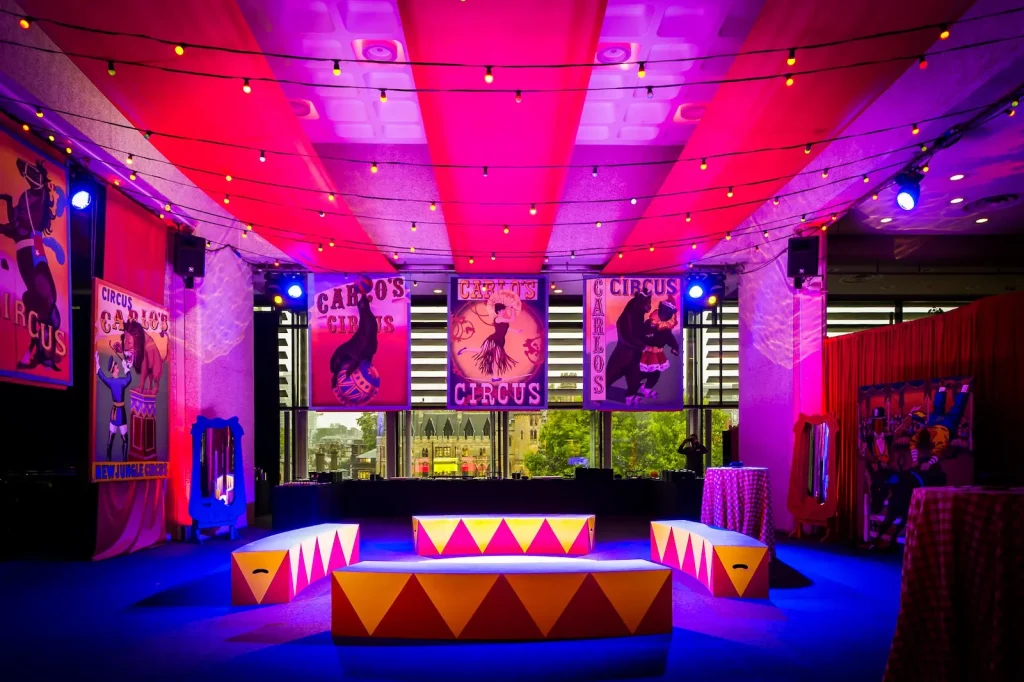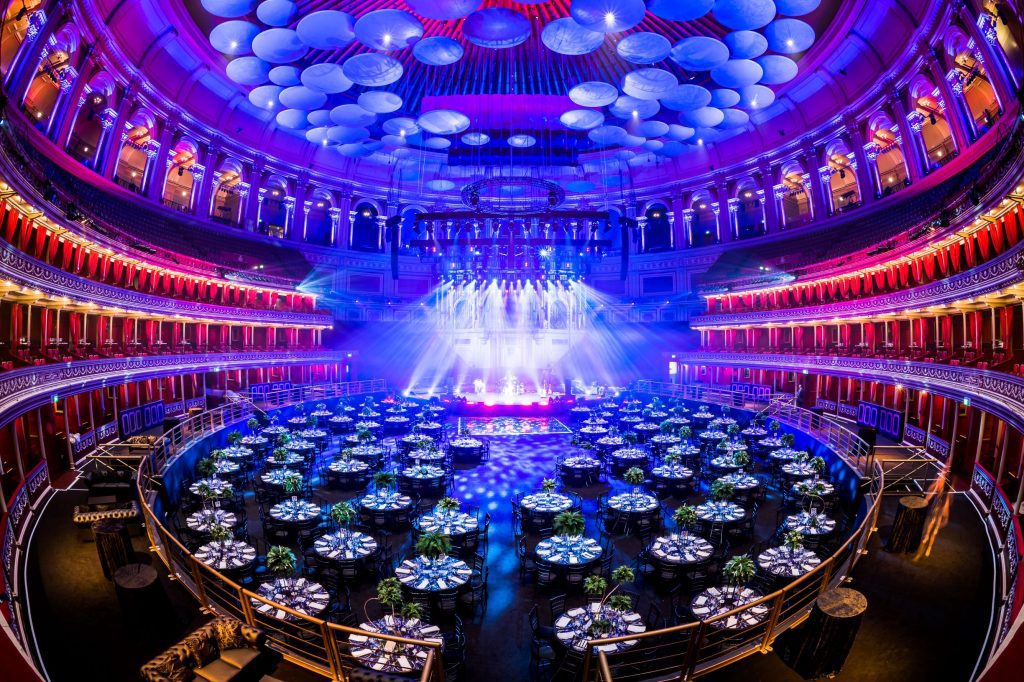How to Plan an Event: The 7 Stages of Event Planning

Knowing how to plan an event is the most important part in ensuring you can execute a memorable event which will be talked about forever. Whether you’re organising a corporate conference or an internal business celebration, having a strategy and structure is important in ensuring the process runs smoothly.
We’re here to walk you through the seven stages of the event planning process, so you can deliver an incredible event confidently and effortlessly.
Stage 1: Define your Objectives
Before starting to contact vendors, it’s important to ask yourself the ‘purpose’ behind the event. Identifying clear objectives creates the foundation of every decision that follows. Start by aligning the company’s values with the goals of the event. Is your aim to celebrate a company accomplishment or achievement?
You could break this process down by using the acronym SMART to outline your objectives:
- Specific: What is the purpose of having the event?
- Measurable: How will you keep everything on track?
- Achievable: How realistic is the goal?
- Relevant: Does the idea align with the company values?
- Timely: What are the deadlines?
Keeping it simple like this will make things clear and easy to understand.
Stage 2: Budget and Scope
Now that you have your objectives set, it’s vital to determine your budget and how much you are wanting to spend in each section. Make a list of potential expenses:
- Venue
- Catering and refreshment
- Event Decorations
- Entertainment
It is also important to ensure you keep an 10-15% contingency buffer for any unexpected costs.
Stage 3: Venue and Date Selection

Finding the right venue and date can be critical to the success of the event. You must take into consideration the location, the number of guests and the accessibility of your venue. We recommend getting in touch with a potential venue early on, so you know if they have any availability for your chosen dates. It would also be a good idea to go and physically see the venue so you have an idea of the area space and what you could include.
Stage 4: Vendor and Team Coordination
Behind each successful event is a well-organized team and a dependable network of vendors. Find good vendors for catering, AV, decor and entertainment. Make sure to get contracts, deadlines and deliverables sorted out well in advance. Internally, assign clear roles: who is handling logistics, guest experience, or tech setup?
Collaborate on shared timelines or Gantt charts to stay on track. Communication is essential; regular check-ins help identify issues before they escalate. Think of this stage as building the engine room of your event. When all the parts work well together, the entire experience improves.
Stage 5: Risk Management and Contingency Planning
There are always chances of bumps in the road in any stage of the event planning process. It’s important to identify any risks/problems that could occur early to ensure potential solutions or contingency plans can be prepared in advanced to prevent them from turning into a big problem that will disrupt the event. Forward planning for the worst helps to make sure your event brings it best.
Stage 6: On the day Execution

Clear planning is important for this day to run smoothly. We recommend creating a detailed outline of the day to ensure each stage stays on track and communication maintains clear. Get to the venue early and look at each section to ensure you have a clear vision of what’s going in each section and how this is going to be achieved. Having a detailed plan will allow you to stay focused on the day and prevent mistakes being made and you becoming overwhelmed and stressed.
Stage 7: Post Event Evaluation
The hard work is now over and now it time to reflect and look back and what went well and what didn’t. It’s a good idea to gather feedback for from team members and vendors to see how improvements can be made for next time and what could have been done differently.
Planning a successful corporate event is more than just a walk in the par, it’s a mission. But with the right preparation and strategy you’ll be able to run and deliver a seamless event that will impress your guest and give them something to talk about after the event has finished.
Our team at Eventologists is here to help design, plan and execute your perfect, flawless event – just get in touch today!
